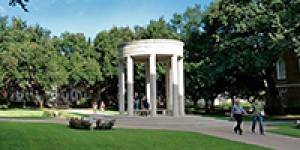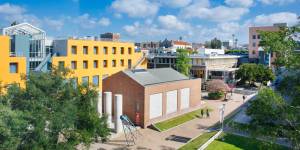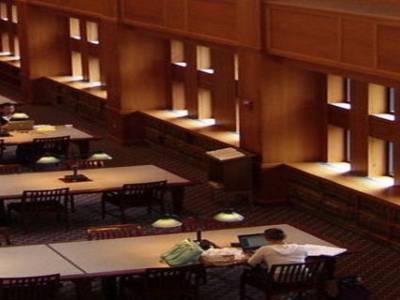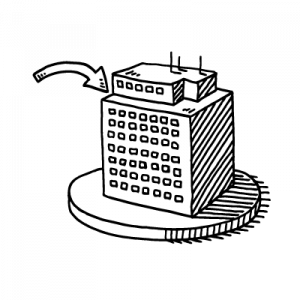Does anyone know where you can take the Bar exam as a foreign laywers without having a JD? I know you can do it in New York and in California, but what about the other states?
Bar Exam
Posted Jan 09, 2005 22:22
Posted Jan 09, 2005 23:17
Hello Russ
I also just know about the possibilities in New York and California but try this link for more info: http://jurist.law.pitt.edu/barexam.htm
Amy
I also just know about the possibilities in New York and California but try this link for more info: http://jurist.law.pitt.edu/barexam.htm
Amy
Posted Jan 10, 2005 01:00
Where do you plan to take the exam by the way? I have also been thinking about doing the bar exam sometime after the LLM year but I am not sure they accept people if they did the LLM outside the US? Know anything abouth that?
Posted Jan 28, 2005 17:56
The bar exam essay sections are different for each state, while the multi-state portion is the same. So, the passage rate for each state is much different. California and New York are known as "difficult" states to pass, but they also have many takers. If you are serious about taking a US bar exam, you should sign up for a bar review course in your choosen state. Most people use BAR/BRI, which is about a two month program. My guess is that it costs about $1500US now, but I am not sure. Good luck.
Posted Feb 13, 2005 00:29
Russ,
Barbri is definitely good preparation for the bar exam. The other serious (but smaller) possibility is Pieper... both will set you back about $2500 if I'm not mistaken.
Time period of preparation is about 2.5 months, which is not so bad, and it's definitely feasible if you do the work (i.e. if you're a foreign lawyer it's not easy, but it's also not the horrific experience most other people will say it was). Without a US JD I would definitely recommend taking one of these courses, they'll make your preparation much easier than doing it on your own.
Best,
Oliver
Barbri is definitely good preparation for the bar exam. The other serious (but smaller) possibility is Pieper... both will set you back about $2500 if I'm not mistaken.
Time period of preparation is about 2.5 months, which is not so bad, and it's definitely feasible if you do the work (i.e. if you're a foreign lawyer it's not easy, but it's also not the horrific experience most other people will say it was). Without a US JD I would definitely recommend taking one of these courses, they'll make your preparation much easier than doing it on your own.
Best,
Oliver
Posted Feb 22, 2005 12:25
I heard that New York State Bar Examinations are every July and February. So If I fininsh my LLM in May, does that give me enough time and chances tp pass the July exam?
Thanks.
Thanks.
Posted Feb 26, 2005 12:18
Hi everyone, I just want to know how it is after you succeed in the bar exam????
In France, you pass an exam to enter in the "Bar school" for 2 yearsand after you are a lawyer, it is the same in the USA ??
Thx For the response ....
In France, you pass an exam to enter in the "Bar school" for 2 yearsand after you are a lawyer, it is the same in the USA ??
Thx For the response ....
Posted Mar 21, 2005 14:07
Are there any nationality restrictions for passing the bar exam in NY? For example, in France, you have to be a EU-national or you have to justify of reciprocity with your country of origin. I never heard of such things in relation to American bar, but who knows, maybe, I missed smth. Thank you for your replies.
Posted Mar 25, 2005 11:02
New York rules for the admission of attorneys and counselors at law (520.6 is about foreign law degrees):
Source: http://www.nycourts.gov/ctapps/
520.1 General
(a) A person shall be admitted to practice law in the courts of the State of New York only by an order of the Appellate Division of the Supreme Court upon compliance with these rules.
(b) Saving Clause. Those provisions of the rules of the Court of Appeals for the admission of attorneys and counselors at law that prescribe the qualifications for admission to the New York State bar examination, which were in effect at the time an applicant for admission commenced the study of law, to the extent that the application thereof was or would have been less restrictive or burdensome, shall determine the applicant's eligibility for admission to such examination.
520.2 Admission Upon Examination
(a) Proof Required by the New York State Board of Law Examiners. An applicant for admission to the New York State bar examination shall furnish to the New York State Board of Law Examiners, in accordance with its rules, proof satisfactory to said board:
(1) that applicant is over 21 years of age;
(2) as to the date and place of birth; and
(3) that applicant has complied with section 520.3, 520.4, 520.5 or 520.6 of this Part.
520.3 Study of Law in Law School
(a) (1) General. Except as otherwise provided in paragraph (2) of this subdivision, an applicant may qualify to take the New York State bar examination by submitting to the New York State Board of Law Examiners satisfactory proof that applicant attended and was graduated with a first degree in law from a law school or law schools which at all times during the period of applicant's attendance was or were approved.
(2) An applicant may qualify to take the New York State bar examination by submitting to the New York State Board of Law Examiners satisfactory proof that applicant attended and successfully completed the prescribed course of instruction required for a first degree in law, but the State Board of Law Examiners shall not certify the applicant for admission to the bar pursuant to section 520.7(a) of this Part until the applicant has presented a certificate showing that the applicant has been awarded a first degree in law.
(b) Approved Law School Defined. An approved law school for purposes of these rules is one:
(1) whose program and course of study meet the requirements of this section, as shown by the law school's bulletin or catalogue, which shall be filed annually with the Clerk of the Court of Appeals; and
(2) which is approved by the American Bar Association.
...
520.6 Study of Law in Foreign Country; Required Legal Education
(a) General. An applicant who has studied in a foreign country may qualify to take the New York State bar examination by submitting to the New York State Board of Law Examiners satisfactory proof of the legal education required by this section.
(b) Legal Education.
(1) The applicant shall show fulfillment of the educational requirements for admission to the practice of law in a country other than the United States by successful completion of a period of law study at least substantially equivalent in duration to that required, under subdivisions (d) and (e) of section 520.3 of this Part, in a law school or schools each of which, throughout the period of applicant's study therein, was recognized by the competent accrediting agency of the government of such other country, or of a political subdivision thereof, as qualified and approved; and
(i) that such other country is one whose jurisprudence is based upon the principles of the English Common Law, and that the program and course of law study successfully completed by the applicant were the substantial equivalent of the legal education provided by an approved law school in the United States; or
(ii) if applicant does not meet the durational equivalency requirements of subdivision (b)(1) of this section but has at least two years of substantively equivalent education, or if the applicant does not meet the substantive equivalency requirements of subdivision (b)(1) (i) of this section, that applicant has successfully completed a full-time or part-time program consisting of a minimum of 20 semester hours of credit, or the equivalent, in professional law subjects, which includes basic courses in American law, in an approved law school in the United States; or
(2) The applicant shall show admission to practice law in a country other than the United States whose jurisprudence is based upon principles of English Common Law, where admission was based upon a program of study in a law school and/or law office recognized by the competent accrediting agency of the government of such other country and which is durationally equivalent yet substantively deficient under subdivision (b)(1)(i) of this section, and that such applicant has successfully completed a full-time or part-time program consisting of a minimum of 20 semester hours of credit, or the equivalent, in professional law subjects, which includes basic courses in American law, in an approved law school in the United States.
(c) Proof Required. The applicant shall submit to the New York State Board of Law Examiners such proof of compliance with the provisions of this section as the board may require.
Source: http://www.nycourts.gov/ctapps/
520.1 General
(a) A person shall be admitted to practice law in the courts of the State of New York only by an order of the Appellate Division of the Supreme Court upon compliance with these rules.
(b) Saving Clause. Those provisions of the rules of the Court of Appeals for the admission of attorneys and counselors at law that prescribe the qualifications for admission to the New York State bar examination, which were in effect at the time an applicant for admission commenced the study of law, to the extent that the application thereof was or would have been less restrictive or burdensome, shall determine the applicant's eligibility for admission to such examination.
520.2 Admission Upon Examination
(a) Proof Required by the New York State Board of Law Examiners. An applicant for admission to the New York State bar examination shall furnish to the New York State Board of Law Examiners, in accordance with its rules, proof satisfactory to said board:
(1) that applicant is over 21 years of age;
(2) as to the date and place of birth; and
(3) that applicant has complied with section 520.3, 520.4, 520.5 or 520.6 of this Part.
520.3 Study of Law in Law School
(a) (1) General. Except as otherwise provided in paragraph (2) of this subdivision, an applicant may qualify to take the New York State bar examination by submitting to the New York State Board of Law Examiners satisfactory proof that applicant attended and was graduated with a first degree in law from a law school or law schools which at all times during the period of applicant's attendance was or were approved.
(2) An applicant may qualify to take the New York State bar examination by submitting to the New York State Board of Law Examiners satisfactory proof that applicant attended and successfully completed the prescribed course of instruction required for a first degree in law, but the State Board of Law Examiners shall not certify the applicant for admission to the bar pursuant to section 520.7(a) of this Part until the applicant has presented a certificate showing that the applicant has been awarded a first degree in law.
(b) Approved Law School Defined. An approved law school for purposes of these rules is one:
(1) whose program and course of study meet the requirements of this section, as shown by the law school's bulletin or catalogue, which shall be filed annually with the Clerk of the Court of Appeals; and
(2) which is approved by the American Bar Association.
...
520.6 Study of Law in Foreign Country; Required Legal Education
(a) General. An applicant who has studied in a foreign country may qualify to take the New York State bar examination by submitting to the New York State Board of Law Examiners satisfactory proof of the legal education required by this section.
(b) Legal Education.
(1) The applicant shall show fulfillment of the educational requirements for admission to the practice of law in a country other than the United States by successful completion of a period of law study at least substantially equivalent in duration to that required, under subdivisions (d) and (e) of section 520.3 of this Part, in a law school or schools each of which, throughout the period of applicant's study therein, was recognized by the competent accrediting agency of the government of such other country, or of a political subdivision thereof, as qualified and approved; and
(i) that such other country is one whose jurisprudence is based upon the principles of the English Common Law, and that the program and course of law study successfully completed by the applicant were the substantial equivalent of the legal education provided by an approved law school in the United States; or
(ii) if applicant does not meet the durational equivalency requirements of subdivision (b)(1) of this section but has at least two years of substantively equivalent education, or if the applicant does not meet the substantive equivalency requirements of subdivision (b)(1) (i) of this section, that applicant has successfully completed a full-time or part-time program consisting of a minimum of 20 semester hours of credit, or the equivalent, in professional law subjects, which includes basic courses in American law, in an approved law school in the United States; or
(2) The applicant shall show admission to practice law in a country other than the United States whose jurisprudence is based upon principles of English Common Law, where admission was based upon a program of study in a law school and/or law office recognized by the competent accrediting agency of the government of such other country and which is durationally equivalent yet substantively deficient under subdivision (b)(1)(i) of this section, and that such applicant has successfully completed a full-time or part-time program consisting of a minimum of 20 semester hours of credit, or the equivalent, in professional law subjects, which includes basic courses in American law, in an approved law school in the United States.
(c) Proof Required. The applicant shall submit to the New York State Board of Law Examiners such proof of compliance with the provisions of this section as the board may require.
Posted Mar 25, 2005 11:13
Dates of Bar Examinations/Application Deadlines: The bar examination is held twice a year, generally on the last Tuesday and Wednesday of July and February.
Dates of the next scheduled bar examinations:
FEBRUARY EXAM DATES JULY EXAM DATES
February 24 - 25, 2004 July 27 - 28, 2004
February 22 - 23, 2005 July 26 - 27, 2005
February 21 - 22, 2006 July 25 - 26, 2006
February 27 - 28, 2007 July 24 - 25, 2007
Applications to take the bar examination must be postmarked no more than 120 days, nor less than 90 days prior to the examination for which application is being made. There is no provision for late filing except that for applicants who took the immediately preceding New York bar examination, the deadline for re-application is 21 days from the date of the applicant's failure notice, or 90 days prior to the examination, whichever is later.
***
Cost and Payment of Required Fees: All fees payable to the Board must be in the form of a certified check or money order payable to: "State Board of Law Examiners." Fees are as follows:
Examination $250
Certificate of Legal Education (Admission on Motion ONLY) $400
Copies of essay questions from three prior examinations with above
average sample candidate answers $ 50
The following are available for 30 days following the release of the results of the exam:
Copies of essay questions $ 15
Copies of above average sample candidate answers $ 15
Copies of failed applicant's own essay answers $ 40
***
http://www.nybarexam.org/frequent.htm
Dates of the next scheduled bar examinations:
FEBRUARY EXAM DATES JULY EXAM DATES
February 24 - 25, 2004 July 27 - 28, 2004
February 22 - 23, 2005 July 26 - 27, 2005
February 21 - 22, 2006 July 25 - 26, 2006
February 27 - 28, 2007 July 24 - 25, 2007
Applications to take the bar examination must be postmarked no more than 120 days, nor less than 90 days prior to the examination for which application is being made. There is no provision for late filing except that for applicants who took the immediately preceding New York bar examination, the deadline for re-application is 21 days from the date of the applicant's failure notice, or 90 days prior to the examination, whichever is later.
***
Cost and Payment of Required Fees: All fees payable to the Board must be in the form of a certified check or money order payable to: "State Board of Law Examiners." Fees are as follows:
Examination $250
Certificate of Legal Education (Admission on Motion ONLY) $400
Copies of essay questions from three prior examinations with above
average sample candidate answers $ 50
The following are available for 30 days following the release of the results of the exam:
Copies of essay questions $ 15
Copies of above average sample candidate answers $ 15
Copies of failed applicant's own essay answers $ 40
***
http://www.nybarexam.org/frequent.htm
Posted Mar 25, 2005 14:59
This is what joi029 wrote in another thread:
Please take notice that S. 520.3 and 520.6 requires a total of 3 years undergraduate experience both substantively and durationally. A 2-year LLB followed by a 1 year LLM would NOT suffice, however, a 3-year LLB does. I have a 3-year LLB from London and qualified (and passed) the NY BAR exam in Feb 04. Therefore, I can fully guarantee that a 3-year LLB is all you would need. Hope this helps.
<blockquote>Please take notice that S. 520.3 and 520.6 requires a total of 3 years undergraduate experience both substantively and durationally. A 2-year LLB followed by a 1 year LLM would NOT suffice, however, a 3-year LLB does. I have a 3-year LLB from London and qualified (and passed) the NY BAR exam in Feb 04. Therefore, I can fully guarantee that a 3-year LLB is all you would need. Hope this helps.</blockquote>
Posted Apr 05, 2005 00:23
hi i am new at all this. i am still in my first year of my law degree in england but am looking into sitting the bar in california. if i have read the stuff i found right then i can do the LLM in california and that will qualify me to sit the bar. and i dont heve to be a qualified lawyer in england. could someone tell me if i have read it right or am i completely wrong? thanks
Posted Apr 05, 2005 00:33
yes you can write the NYbar exam after completing your LLB in england
But i warn you its not easy you have to throw out most of the stuff you learnt in UK as the system here is very differen
e.g.Conflict of laws is a big thing here.
But i warn you its not easy you have to throw out most of the stuff you learnt in UK as the system here is very differen
e.g.Conflict of laws is a big thing here.
Posted Apr 15, 2005 19:58
does anyone know do i have to qualify as a lawyer in england to sit the ny bar? i am doing a degree then want to do an llm course in ny but i dont want to qualify in england. also if i do the ny bar would i be able to sit the california bar afterwards and if so is there a certain time limit i must wait before i can do it? eg 5 years practicing law in ny or something like that. thanks for any help anyone can give me.
Posted Apr 15, 2005 20:16
You can take the CA or NY bar after your LLM. You don't need to qualify as an English attorney. I am not sure about a time limit (other than perhaps your F or J visa might run out), but I would presume that you can take the CA or NY anytime. I don't know if this applies to foreigners, but if you take both the CA and NY bar, as a domestic attorney, you will have to worry about MCLE credits- additional hours of training to maintain your bar license. For convenience and financial efficiency, you probably should sit for the bar that most helps your career. By the way, the CA bar exam is harder than the NY bar (although both are tough).
Posted Apr 15, 2005 20:19
hey, i know that once u do the LLM program u are allowed to sit the new york, NORTH CAROLINA, etc . there are a few states that allow this, less than ten i should think. the burden is on you to prove to them that your LLB is from an accepted legal system, ie commonwealth. there are a lot of things. check the American Bar Association or Jurists homepages.
have u done an LLM.
have u done an LLM.
Posted Apr 15, 2005 20:21
John Scott--As to your quesation about sitting for the CA bar after passing the NY bar, there is no short answer. CA is not a "reciprocity" state--meaning that no matter if you have already passed the bar in another state, you still must sit for the CA bar (i.e., no waiving in). If you have been practicing law in another US state (including NY), though, for 4 or more years, CA will allow you to take an Attorneys Exam. This means that you must take the essay portion and the practical/performance section of the bar. You will not have to take the multi-state exam again. Let me know if you have any additional questions, as I have already gone through this process.
Posted Apr 16, 2005 14:49
the original route i wanted to take was to go straight to california but people have been telling me that i have to qualify as a lawyer in england before i come over which is a route i dont want to take as it will take a further 3 years after my degree. i am waiting to hear from the california state bar to confirm what i have heard. but if anyone else could help? would a law degree from england and then do the llm from a california law school be enough to be eligible to sit the bar exam in california.
Posted Apr 17, 2005 02:55
I have a few friends with the UK LLB law degree and they took the NY bar exam and passed 1st time. They didn't do LLM nor the UK LPC or Bar Vocational Course. They are actually working in NYC right now. So, you're good to go! I believe it's also the same thing for California.
By the way, do you have an LLB? I'm from the UK with LLB and I'm taking the NY Bar exam in July.
By the way, do you have an LLB? I'm from the UK with LLB and I'm taking the NY Bar exam in July.
Posted Apr 17, 2005 11:07
Ok, I have browsed through the board and its topics, and I believe this one to be the most appropriate to the issue I am bringing at this time.
I have seen your postings here, and have come to the conclusion that some of you harbor good knowledge regarding general information to the admissions to the bar exam in America.
I took the opportunity to read 'section' (?) or paragraph 520.6 of the NY state bar regulation which points out the guidelines for foreigners to take the exam in NY. Nevertheless, I have not yet clearly understood the requirements set forth. Maybe you could help me understand it a little better.
-What does a "first degree" in law - in the US - mean?
-What is the "pro hac vice" procedure? I read it, but could not fully comprehend it.
-Would Brazil be considered a country with principles set under the English Common Law? I know it is based on Roman Law, but what would "principles" be considered, in casu?
I will be a licensed attorney with a bachelor in law from Brazil wishing to take the bar in America.
I know that many from Brazil have taken the bar after completing the LLM courses in the states. However, what I do wonder is about the possibility of taking the exam without the LLM. It would be a situation solely based on a foreigner bachelor's degree + license to act as an attorney at my country of origin.
Anyone?
Sincerely,
Tom (SP/SP)
I have seen your postings here, and have come to the conclusion that some of you harbor good knowledge regarding general information to the admissions to the bar exam in America.
I took the opportunity to read 'section' (?) or paragraph 520.6 of the NY state bar regulation which points out the guidelines for foreigners to take the exam in NY. Nevertheless, I have not yet clearly understood the requirements set forth. Maybe you could help me understand it a little better.
-What does a "first degree" in law - in the US - mean?
-What is the "pro hac vice" procedure? I read it, but could not fully comprehend it.
-Would Brazil be considered a country with principles set under the English Common Law? I know it is based on Roman Law, but what would "principles" be considered, in casu?
I will be a licensed attorney with a bachelor in law from Brazil wishing to take the bar in America.
I know that many from Brazil have taken the bar after completing the LLM courses in the states. However, what I do wonder is about the possibility of taking the exam without the LLM. It would be a situation solely based on a foreigner bachelor's degree + license to act as an attorney at my country of origin.
Anyone?
Sincerely,
Tom (SP/SP)
Other Related Content
In-Depth: The American Bar Exam
Article Jan 07, 2017
Confused about the differences between the UBE and MBE? Don’t know if you’re eligible to take the bar exam? You’re not alone. A guide to help LL.M. students and graduates navigate the US bar exam.
Hot Discussions
-
Georgetown LLM 2024/2025 applicants
Nov 16, 2024 40,187 209 -
Oxford 2025-2026 BCL/MSCs/MJUR/MPHIL/MLF
Nov 15, 2024 2,109 44 -
NUS LLM 2024-25 Cohort
Oct 25, 2024 5,863 34 -
Harvard LLM 2025-2026
Nov 20 09:34 PM 1,782 7 -
Warwick or Birmingham
Nov 10, 2024 1,167 5 -
LL.M. Scholarship Rates?
Nov 09, 2024 2,509 5 -
Scholarship Negotiation Strategy (BCL v. NYU LLM Dean's Graduate Scholarship)
Nov 09, 2024 1,047 4 -
EU citizen barred in the US -- will an LLM from an EU school help me practice law somewhere in the EU?
Nov 15, 2024 143 4




